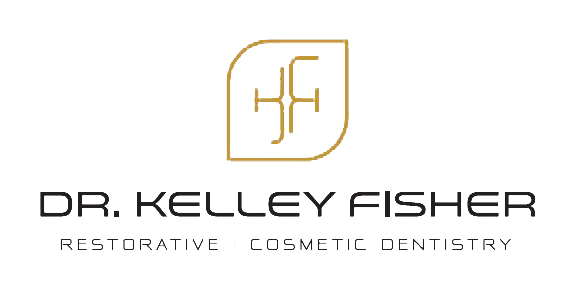Root Canals - Are They Safe?
Root Canals and Their Safety: A Balanced Look from a Holistic Perspective
At our practice, we believe in providing patients with both the conventional options and the long-term wellness perspective they deserve. When a tooth becomes infected or the pulp is irreversibly damaged, the standard of care in dentistry has long been the root canal (endodontic) procedure: removing the diseased pulp, cleaning and shaping the canals, and sealing the tooth so that the natural structure remains. In many cases, this is a very good option. However, from a holistic and integrative health viewpoint, there are important considerations and trade-offs.
The Pros of Root Canals
Root canal treatment allows you to keep your natural tooth. Preserving natural dentition is generally preferable for function, aesthetics, and maintenance of the jawbone and surrounding tissues.
When performed properly, root canal therapy has very high success rates and is considered safe by mainstream dental organizations. For example, the American Association of Endodontists note that modern studies do not support the older “focal infection” theory linking root-canal-treated teeth to systemic disease. Southeastern Dental Center+3American Association of Endodontists+3Northcoast Endodontic Specialists, Inc.+3
It can prevent the spread of infection, avoid extraction, and maintain the smile you have with relatively minimal disruption if the case is straightforward.
The Cons & the Holistic Considerations
From our holistic dentistry lens, there are a number of reasons why root canals may not always represent the optimal long-term solution for every patient:
Residual infection / anatomical complexity – Even when thoroughly cleaned, the root-canal system is highly complex, with microscopic tubules, accessory canals, and lateral branches. Some research indicates that bacteria from the root canal area can enter the bloodstream. For example a review found that improved lab techniques have identified bacteria originating in root-canal treated teeth. PubMed+1 Biological-dentistry literature raises concerns that untreated micro-infection or micro-leakage may persist. IABDM+1
Structural weakening of the tooth – Once a root canal is completed, the tooth has no viable pulp tissue and is often considered “non-vital”. Without the living tissue, the tooth may be more prone to fracture over time. This is cited in holistic sources as a risk to the long-term integrity of the tooth. IABDM+2Norman Family Dentistry+2
Holistic health and systemic risk concerns – Although modern mainstream dentistry holds that there is no persuasive causal link between properly performed root canals and systemic diseases, skepticism remains in some integrative circles. For example, a 2024 blog article notes that whilst early theories linking root canals to major diseases were discredited, some recent papers still point to long-term inflammation being associated with autoimmune disorders. Largo Endodontics. Additionally, one practice cites biological dentistry sources that claim root-canal teeth often harbor dozens of pathogens. Holistic Dental Center New Jersey+1 . While these concerns are not universally accepted or validated in large randomized trials, they are part of the holistic dialogue and merit discussion with patients.
Maintenance, retreatment and failure risk – No procedure is perfect. There remains a small risk of reinfection, post-treatment complications (instrument fractures, missed canals), or complication in restoration. The success of the root canal is heavily influenced by the initial condition of the tooth, the presence of pre-existing lesions, quality of the restoration after endodontics, and the patient’s overall health and hygiene. elitedental.studio+1
Long-term wellness alignment – In our integrative practice, we evaluate not just the local tooth outcome but the impact on the whole body. If a root-canal treated tooth is in a patient with chronic health conditions, sensitivity to dental materials, or a compromised immune system, we believe there may be compelling reasons to favour a different path.
Our Approach: When Root Canals Are Performed—and When We Recommend Extraction + Implant
At our practice we do perform high-quality root canal treatments when the clinical situation and patient wellness goals align. If the tooth can be restored with predictable long-term outcome, it is a viable option. That said, given our holistic philosophy and our use of biocompatible, non-metal solutions (for both materials and implants), we often counsel patients that the best long-term solution may be extraction of the compromised tooth followed by placement of a ceramic (non-metal) implant restoration—particularly in cases of:
Extensive infection or compromised canal anatomy
Periodontal involvement or bone loss around the tooth
Patients with systemic health concerns, immune challenges or sensitivities
Situations where the restored tooth is likely to fracture or fail over time
By opting for a ceramic implant (such as those from Swiss Dental Solutions) in such cases, we aim to provide a long-term, biocompatible solution that aligns with whole-body wellness and avoids ongoing risk of retreatment, hidden infection or structural failure
While root canal treatment remains a well-established, safe, and effective method for saving teeth, it’s not a one-size-fits-all solution—especially when the goal is integrated oral health and whole-body wellness. We believe in transparency: evaluating each case not only for the immediate outcome, but for long-term stability, biocompatibility, and systemic health alignment. If you’re weighing root canal versus extraction plus implant, we’ll walk you through the relevant research, the pros and cons, and help you decide the path that best supports your dental future and your overall health.

